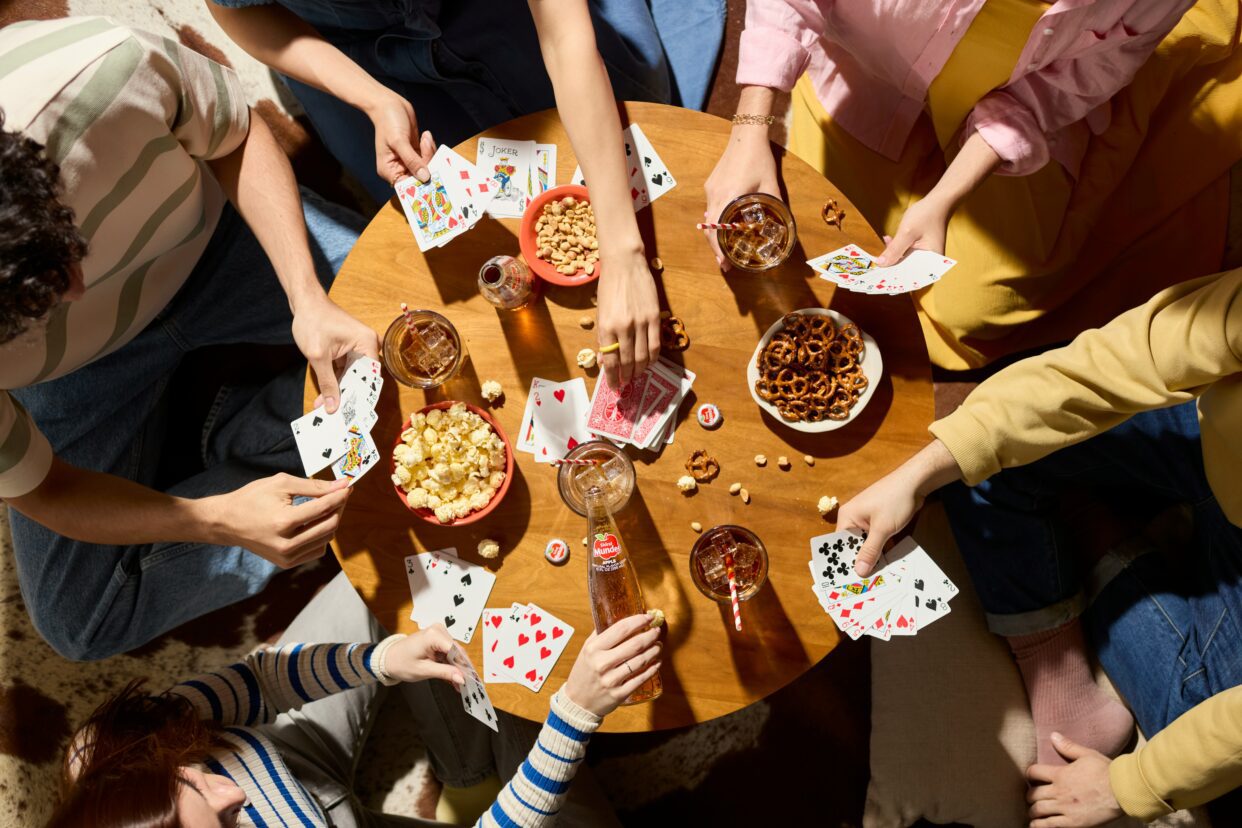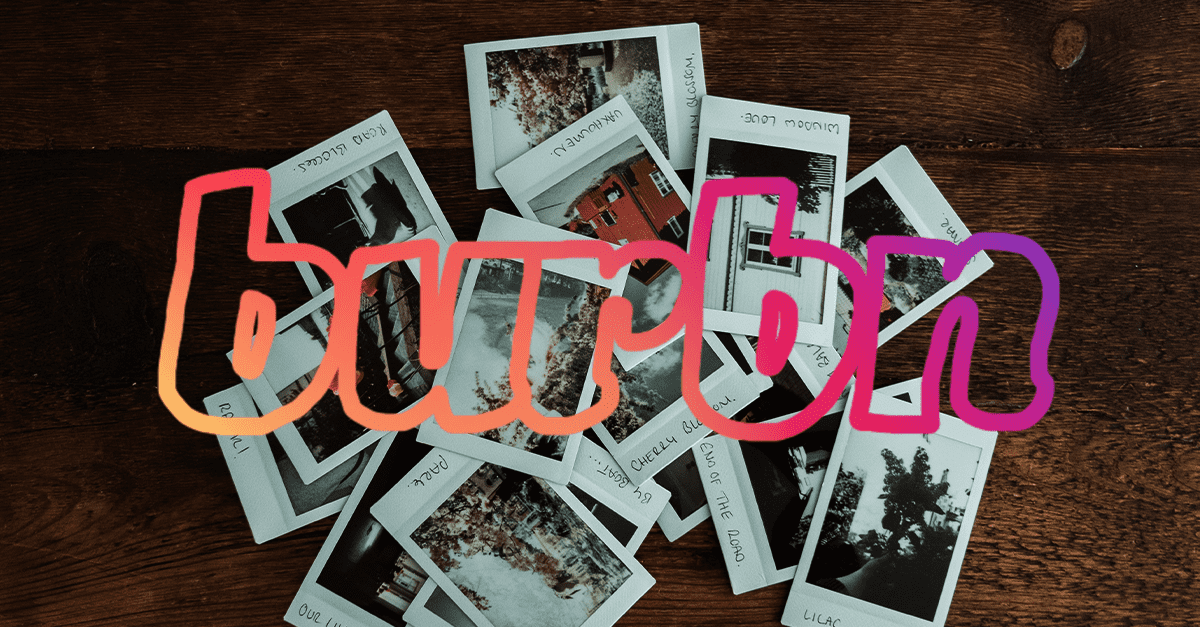7 Super Tips | Andy Puddicombe
Take a moment to be still and make sure you’re sitting comfortably. And when you’re ready, in your own time, let’s begin by taking some deep breaths… if you recognize this intro, you may be able to guess today’s 7 Super Tips guest. Andy Puddicombe is a meditation and mindfulness expert. An accomplished presenter and writer, Andy is the voice of all things Headspace, a digital health company that provides guided meditation. He is also the co-founder of Headspace and a former Buddhist monk. In this episode, Andy offers tips on happiness and enlightenment, the benefits of meditation, shares his experience living in a monastery, and much more.
Need a sneak peek? Below are the main takeaways from the episode.
7 Super Tips with Andy Puddicombe
Tip #1
“I was about 11 When I went along to my first meditation class. And trust me, I had all the stereotypes that you can imagine sitting cross-legged on the floor, the incense, the herbal tea, the vegetarians, the whole deal, but um, my mom was going and I was intrigued. So I went along with her, I’d also seen a few kung fu movies and secretly I kind of thought I might be able to learn how to fly but I was very young at the time, you know. Now, as I was there, you know, I guess like a lot of people I assumed that it was just an aspirin for the mind. You get stressed to do some meditation, and really thought that it could be sort of preventative in nature, until I was about 20 When a number of things happened in my life and quite quick succession. Really serious things that just flipped my life upside down. And all of a sudden I was inundated with thoughts, inundated with difficult emotions that I didn’t know how to cope with every time I sort of pushed one down, another one would just sort of pop back up again, it was a really very stressful time. I guess we will deal with stress in different ways. Some people will bury themselves in work grateful for the distraction, others will turn to their friends or family looking for support. Some people hit the bottle, and start taking medication, my own way of dealing with it was to become a monk. So I quit my degree, I headed off to the Himalayas, I became a monk and I started studying meditation. People often ask me, you know what I learned from that time? Well, obviously, it changed things, you know, let’s face it, becoming a celibate monk is going to change a number of things. But it was more than that. You know, it, it taught me it gave me a greater appreciation and understanding of the present moment. By that I mean, not being lost in thought, not being distracted, not being overwhelmed by difficult emotions. But instead learning how to be in the here and now how to be mindful how to be present. I think the present moment is so underrated. Sounds so ordinary. And yet, we spend so little time in the present moment that it’s anything but ordinary. There was a research paper that came out of Harvard just recently, that said, on average, our minds are lost in thought, almost 47% of the time 47%. At the same time, this sort of constant mind wandering is also a direct cause of unhappiness. Now, we’re not here for that long anyway. But to spend almost half of our life, lost in thought, and potentially quite unhappy. That just kind of seems tragic, actually, especially when there’s something we can do about it. When there’s a positive, practical, achievable, scientifically proven technique, which allows our mind to be more healthy, to be more mindful, and less distracted.”
Tip #2
“So the experience and for anyone thinking about going and taking that experience, I think, you know, there’s a there’s a honeymoon phase. And if you’ve done any sort of retreat or anything like that, you’ll you’ll kind of recognize this when you first go there. And this was way before social media and mobile phones and everything so but even then there’s a honeymoon phase, where it just feels like you’re away from the distraction of the world feels very peaceful, feels very calm, very easy. And then after a week or two, starts getting a little more kind of challenging, you realize that, oh, wow, I just have to sit here with my thoughts. And my thoughts are the same thoughts I have back there. But now I don’t have any distractions. Now I don’t have anywhere to go, there’s no pub to go to, there’s no friends to call up. There’s, there’s not even any books to kind of, you know, escapist type books to kind of read, you know. So it’s quite sort of challenging. And I would say, not in a negative way. But that is then the path, you know, it’s kind of can we sit with the mind, not having any strong preference for how the mind behaves, but instead holding our seat with awareness, getting comfortable with thoughts coming and going, not getting involved in the thoughts, not buying into them or believing that we are the thoughts. And over time, I think that space starts to kind of increase, and we tend to sort of feel less overwhelmed, the mind starts to quieten down a little bit, doesn’t necessarily kind of always sort of stop, so to speak. But it slows down. And, um, for me the big unlock, and again, I’ll say this for anyone, regardless of whether you’re going to go to a monastery or taking a 10-minute kind of meditation session, I went with the idea that I was going to stop thinking that I was going to end thoughts that I was gonna be free from any kind of negative emotions, somehow almost escaping the human realm. I think in my mind, that sort of what I thought. And I discovered it was a very different thing. Actually, it was quite the opposite. It was rather than disconnecting it was reconnecting rather than unplugging, it was plugging back in. And it was actually getting in touch with thoughts and emotions that I hadn’t previously recognized or addressed, getting comfortable with them to such an extent, that they no longer kind of influenced my mind or sort of got in the way of life allowing me to be sort of a bit more, a bit more present. I hope.”
Tip #3
“The interesting thing is, I think there’s often this idea that happiness or enlightenment, or whatever you want to call it is this, this thing out there over there in some other place, when as you start to realize when you kind of practice in that way that it’s actually moment to moment, like enlightenment, happiness, peace of mind, is here in this moment, if we experienced this moment, not only now, but in the next moment, and the next moment, and the next moment, then we have stability, of enlightenment of happiness, or peace of mind. So if you have it 24/7, and it’s moment to moment, and you develop consistency and stability of that, then you always have what you always wanted. And it was always here all along. The idea. Again, I think the misconception sometimes is that that fulfillment, or peace of mind, or nightmare, whatever you wanna call it, is somehow somehow dull, and boring, you know. And that maybe we experience less of life, less of our thoughts, less of our emotions, everything’s just a bit flat. But if you think about your training, and awareness, we’re not becoming less aware of our emotions, and of life, and the highs and lows, we’re actually becoming more aware of it, the difference is that life is no longer controlling us, we’re no longer so easily overwhelmed. And we get to choose. So we see a thought that appears in doesn’t mean that we’re not going to experience sad thoughts, a close friend dies, of course, we’re going to feel kind of devastated. But does that kind of leave us so paralyzed, that we’re unable to continue to live our life in? Or are we able to see it, process it, and let it go?”
Tip #4
“I’m a big believer in lineage. And tradition doesn’t matter whether it’s meditation, or if it’s in Lenin’s playing the piano or surfing, whatever it is, if something gets passed down in a very personal way, over nevermind decades, but if we started talking about hundreds of years or even millennia, there’s something really, there’s like a refinement and development that takes place, which is really powerful, I think. So I learned from my teacher who learned from their teacher, and that goes back a long, long way. And I think a big part of this is a very kind of gradual approach, right? When you come to the app, you learn a day, and you come back the next day, and you’re building on the day before. So it’s, it’s this step-by-step learning kind of process. I think there’s something very valuable in that in the past, back in the 80s, you buy a meditation CD or something, and you just sit there and listen to the same thing every day. So there’s no real kind of development of the practice. It’s quite kind of static, in a way. So I think that’s one thing.”
Tip #5
“So you’ve all I’m sure experience a night where you’ve really really wanted to go to sleep, but you can’t. So then you start thinking, Okay, I need to try a bit harder. So you start trying to go to sleep. We all know how that works out, it doesn’t end well. In the same way, you can’t force a state of awareness of relaxation, all we can do is set up a framework. And just let the mind give the mind space to unwind. Perhaps sounds like this one comes from Tibet a lot more than the car one, the way they talk about it is the way they rein in horses, wild horses, on the steeps there in Mongolia and Tibet, rather than kind of getting the horse and trying to kind of just hop on his back, they throw out a rope, and they give the horse loads and loads of space the horse runs around, feels like it has lots of space, it doesn’t feel like it’s being held in any way at all captured. But over time, they bring it in a little bit. And each time they bring in until the horse comes to a natural place of rest. So that’s what we’re doing with the mind. We’re not trying to kind of pin it down and right focus. Remember going into a bank and hearing one guy say to another guy, right? I’m going to meditate the crap out of this, okay? That’s not going to work, guys, I promise you that’s not going to work. So just bringing it in gently, gently.”
Tip #6
“So there is an idea, right? In the past traditionally, women have gravitated more towards meditation and yoga and these things. Right from the off, it has always been half and half on on the platform. And when we do lots of focus groups and things. And we started asking, so the response we got from men was that, okay, typically, they didn’t have the social circles, so their female friends did. And they didn’t necessarily want to go to their boss or anyone at work, and disclose the fact that they were necessarily struggling with stress or anxiety, they didn’t necessarily want to go and see their doctor or a therapist, the fact that they could have something on their phone that they could use in private that they didn’t need to share with anybody else. That was a really empowering thing. So we suspect that that’s part of it. But I also just think there’s a broader cultural movement now. And I would say, more in the UK here than we see back in the US. So in terms of mental health, and people being willing to just talk openly and say, Actually, I’m having a hard time and that’s okay. I feel like there’s that that’s empowering moment to look at something like this. ”
Tip #7
“We look at our community, and there’s probably I think there’s, there’s over 9 million people now. And when we look at kind of how different people use it, it’s really interesting. There are three very distinct groups, there are those that we call sort of vitamin-type users. So it’s preventative, it’s kind of daily basis, try not even to get to the point where you feel stressed and you’re breaking. There are aspirin users who kind of wait until they feel really stressed. And then they use it to feel less stressed. And then there are people who kind of save it for life, sort of big events, I do think is quite common. We live in such a sort of a driven society, that the idea of Ted, especially in New York, you know, I mean, the idea of taking 10 minutes out of our day to do nothing. I mean, it sounds obscene in New York. But if we don’t, I think it’s just important to remember that what are the implications, not only for ourselves but also for the people around us. So I would encourage anyone who’s thinking about meditation, to think about your motivation, not only kind of about feeling calmer and clearer for yourself, but how you are to the people around you. Like we’re all the same, right? If you think about friends who are always kind of angry, or it’s probably not that pleasant to kind of be around you know, and, and the thing that we can do, the one thing that we can do and have responsibility for in this world is the condition of our own mind. And there’s a ripple effect to that. And when we’re kind and compassionate to the person next to us is a very good chance that they will go on and do the same to the person next to them and I think if there’s enough of us in the world behaving in that way then there’s you know, there’s extraordinary potential.”
Connect with Andy Puddicombe:
Instagram: @andypuddicombe
LinkedIn: https://in.linkedin.com/in/andy-puddicombe-36764721b
Facebook: https://www.facebook.com/andy.puddicombe.7/

To ensure you don’t miss future episodes, subscribe to our podcast by clicking here >> Super U Podcast. We hope these tips help unlock and unleash your inner superpower!
The Super U Podcast is hosted by #1 bestselling author and Motivational Speaker Erik Qualman.





